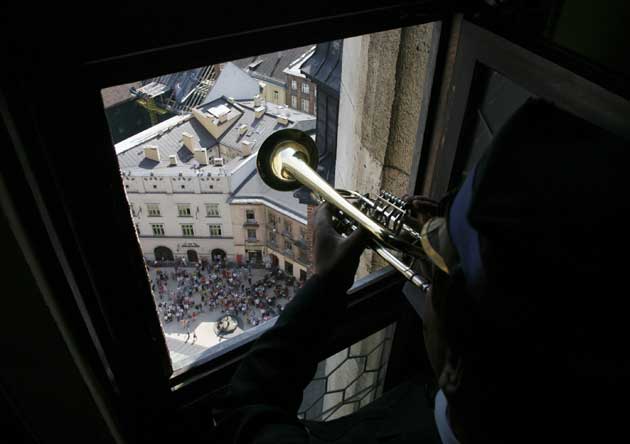
Your support helps us to tell the story
From reproductive rights to climate change to Big Tech, The Independent is on the ground when the story is developing. Whether it's investigating the financials of Elon Musk's pro-Trump PAC or producing our latest documentary, 'The A Word', which shines a light on the American women fighting for reproductive rights, we know how important it is to parse out the facts from the messaging.
At such a critical moment in US history, we need reporters on the ground. Your donation allows us to keep sending journalists to speak to both sides of the story.
The Independent is trusted by Americans across the entire political spectrum. And unlike many other quality news outlets, we choose not to lock Americans out of our reporting and analysis with paywalls. We believe quality journalism should be available to everyone, paid for by those who can afford it.
Your support makes all the difference.One misty morning last November, I took a walk south from the centre of Krakow. In the main square of Poland's showpiece city, near the Renaissance cloth hall, stands a church tower from which an interrupted bugle call recalls the Tatar invaders from the east. Their arrows felled a warning sentinel in 1259. Down the street, the Peter and Paul church, fronted by theatrically sculpted saints, heralds the Jesuit-led fightback that thwarted a Protestant triumph in Poland. That looked likely as nobles embraced the Reformation.
Then comes the Wawel on its mound, symbolic citadel of an embattled nationhood. Outside the walls, the streets of Kazimierz bear witness to the royal tolerance that allowed Jews to thrive while pogroms flared elsewhere. Further on, the wartime ghetto of Podgorze reminds you how that era came to a vile, Nazi-directed end – as does the barren ground where Plaszow camp once stood. Make a detour to ulica Lipowa 4 for a Hollywood ending: the Emalia enamel factory, now an electronics plant, where Oskar Schindler's list saved so many – but so few.
This brief stroll takes you through the heart not of local, nor national, but European history. Like much else about Poland's past and present, it deserves to be far better known in a country that not only hired a horde of Polish workers after EU membership in 2004, but has proved more than happy to let Poles fight and die for it. Adam Zamoyski's invaluable and eye-opening Poland: a history (HarperPress, £14.99) – an update of his 1987 survey The Polish Way – points out that Polish pilots accounted for 7.5 per cent of German aircraft downed in the Battle of Britain. Before Americans arrived, the Allied bomber force was 25 per cent Polish. It puts those plumbing bills in perspective.
Today, 8 May, marks the end in 1945 of a European war that began as Britain and France agreed to honour treaty obligations to Poland. In 1989, the same day saw the first edition of Gazeta Wyborcza –"Election Gazette": the liberal newspaper that stood in the vanguard of Poland's transition from the Solidarity era of mass protest to democratic "normality", with all its many flaws. Zamoyski startled me when he described the fall of Communism in Poland as "the first authentic workers' revolution in European history" – ie, not steered or hi-jacked by a Leninist party elite. But he may well be right.
This year, the Polish Cultural Institute in London (polishculture.org.uk) is staging a season of events to commemorate – and interrogate, since Poles don't do smug self-congratulation – the world-shifting events of two decades ago. Polish writers and thinkers, so near and yet so far for British readers, will loom large. This evening at the South Bank Centre, Gazeta Wyborcza writer Anna Bikont will be joining Geoff Dyer, Jonathan Miller and Michela Wrong to assesss the legacy of Ryszard Kapuscinski, whose brilliantly angled foreign reportage turned journalism into art. Next Wednesday, the British Library will host a "European Literature Night", which will include the wry, wise and offbeat Gdansk writer Pawel Huelle. Antonia Lloyd-Jones has just won the award for Polish-English translation for her version of Huelle's The Last Supper: a novel which looks askance at life after the splintering of political and religious convictions.
Then, at the Hay Festival on 25 May, Tim Garton Ash will be discussing 1989 and its aftermath with Slawomir Sierakowski, charismatic editor of the post-Communist, post-liberal, post-everything journal-cum-movement, Political Critique. I visited their Warsaw offices last year, and had a mind-bending night striving to reconcile the almost parodic Old Europe intellectual ambience – smoke-filled rooms, the Stalinist Palace of Culture glinting nearby – with the achingly trendy cultural theory that the PC crowd proclaims. Postmodern Poland is recapturing a heady pluralism masked by the age of faiths. Try to discover it this year.
P.S.After 31 years, Melvyn Bragg is to retire from the South Bank Show. ITV will axe the programme when he departs. If you seek a monument to what he has done for books on mainstream television, watch SBS this Sunday and on 17 May. A two-part series on Nigerian writers profiles the work of pioneering novelist Chinua Achebe and one of his younger heirs, Chimamanda Ngozi Adichie. Without Bragg's fierce tenacity and commitment, which so many sneery pundits have taken entirely for granted for so long, how would modern African literature feature twice in successive weeks on a populist commercial channel? His achievement has been heroic. And his exit leaves the shameful and scandalous neglect by terrestrial TV of books and reading – a mass national pastime which commands wider active support than any sport – more cruelly exposed than ever before.
b.tonkin@independent.co.uk
Join our commenting forum
Join thought-provoking conversations, follow other Independent readers and see their replies
Comments